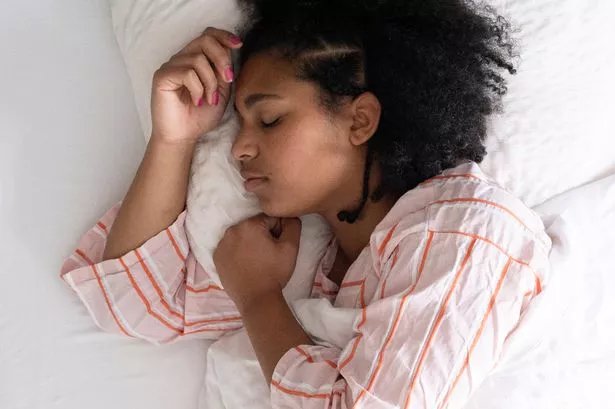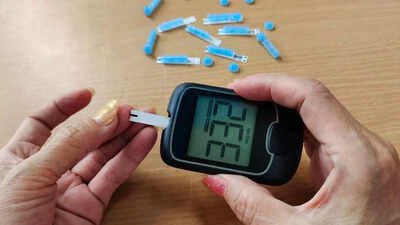It’s drummed into us from birth that breakfast is the most important meal of the day—but what does it mean if you can’t stomach the thought of food before lunch?
A healthy breakfast, loaded with protein, cabs and healthy fats, has long been heralded as the first step to health, helping the body to maintain blood sugar levels, fuel our brains and bodies, and prevent snacking on sugary and high-calorie foods.
Granted, our busy lifestyles make it hard to sit down for a well-thought out breakfast, but a high-protein breakfast can help you stay fuller for longer, ensuring you’re not distracted by a rumbling stomach as the day makes way for the afternoon.
In contrast, sweet cereals can cause spikes in your blood sugar levels, which won’t help you feel more alert in a morning meeting.
Natalie Burrows a nutritional therapist told Stylist Magazine that people need to ask themselves why they’re not hungry in the morning.
She said: ‘My question would be why you’re not hungry for breakfast within the first two hours of being awake?’
For many people, the answer will be that they’ve had a coffee in lieu of breakfast – but this can be problematic.
Ms Burrows added: ‘If it’s because you’re masking hunger consuming coffee, this isn’t a great start to the day. Caffeine does not provide energy to the cells in our body.

Experts have warned skipping breakfast because you’re ‘not hungry’ can be a sign you’re making common mistakes
‘Caffeine causes neural excitation in the brain, which stimulates the adrenal glands to release adrenaline – this provides a false boost of energy.
‘I would recommend not having caffeine until after you’ve had breakfast to support the appropriate regulation of adrenaline and cortisol.’
Many people choose to skip breakfast as they are trying to lose weight, but it can have the opposite effect.
Earlier this year, Spanish scientists pinpointed the amount of calories people should ingest for their first meal of the day if they are looking to shed a few pounds.
They concluded that dieters should aim to eat between 20 to 30 per cent of their daily energy intake for the most important meal of the day.
That’s between 500-750 calories for men, and 400-600 for women.
Getting serious about early morning nutrition can also have a positive effect on your mental health, as well as physical.
In February, a study suggested that tucking into breakfast before 9am could significantly reduce your risk of suffering depression.
Scientists found men and women who ate after 9am were 28 per cent more likely to have low mood and mental health problems than those eating their first meal of the day before 8am.
Skipping breakfast altogether had a similarly damaging impact on psychological well-being, the study found.
If skipping breakfast is due to feeling too tired to eat, or because you simply don’t have time, it might be related to your circadian rhythm, the body’s internal clock which tells us when to eat, sleep, and wake.
Ms Burrows said: ‘If it’s a timing issue, and you’re rushing out the door with no time to eat, or you feel that you’re still too sleepy until lunch then focusing on circadian rhythm can help.
‘Get daylight within 30 minutes of waking and work on your routine at night so you’re getting enough sleep.
‘If you’ve ever had a glass of water first thing when you wake up and felt nauseous, this will be because your body is still switching from melatonin to cortisol dominant and waking up.’
Cortisol, the body’s stress hormone, is responsible for giving us our get up and go – and that includes when the alarm goes off.
Cara Rose, a nutritional therapist told the title the body manages a delicate balancing act between cortisol and melatonin, the hormone which is responsible for making us relaxed and sleepy.
She said: ‘When we are sleeping, our body is in an overnight fast where it has to utilise reserves of glucose stored in the liver, in order to maintain blood sugar balance,’ she said.
‘This only lasts up to around eight hours, and once these stores are used up, our adrenal glands will release hormones such as cortisol to help manipulate blood sugar [by breaking down muscle] to keep us going.
‘Melatonin is our sleep hormone and it works on an alternative ‘shift pattern’ to cortisol.
‘When we wake it can take one or two hours for melatonin to be at low enough levels for eating and drinking to feel good.’
But, Ms Rose added, If you’re not hungry in the morning, it can be a sign you’re chronically stressed.
She explained: ‘Waking up with no appetite could mean you’re running on cortisol, which acts as a stress hormone.’
Previously studies have linked stress to a higher risk of heart disease, stroke, and mental health problems like depression.
If you believe your lack of morning hunger is due to stress, Ms Rose recommends drinking warm water with fresh ginger and lemon to kickstart liver function.
Ms Burrows explained that breakfast can actually be a great way to beat stress.
She added: ‘If stress is part of the picture and a likely contributor then it’s important to work on ways to manage the stress and support your body to relax.
‘Starting with a small breakfast (hold the caffeine) and taking small steps into rebalancing the body’s nervous system can see your morning appetite return.’
It can also help to start your day with deep breathing. Ms Rose said: ‘This will help regulate cortisol and get you out of “fight or flight” mode.’
She recommends doing ‘a couple of rounds of box breathing’ which involves ‘breathing in for four seconds, holding the breath for four seconds, breathing out for four seconds and holding the breath again for four seconds’.
However, if you’re not stressed and are genuinely just not a breakfast person, it’s not necessarily a bad thing, particularly if you follow a Mediterranean diet, which has been hailed for its longevity effects.
Ms Burrows pointed out that those in Mediterranean cultures ‘often have a much lighter or later breakfast’.
The diet she explained ‘can slow the emptying of food from the stomach’ which keeps you ‘fuller for longer’ resulting in ‘lower hunger levels in the morning’.








